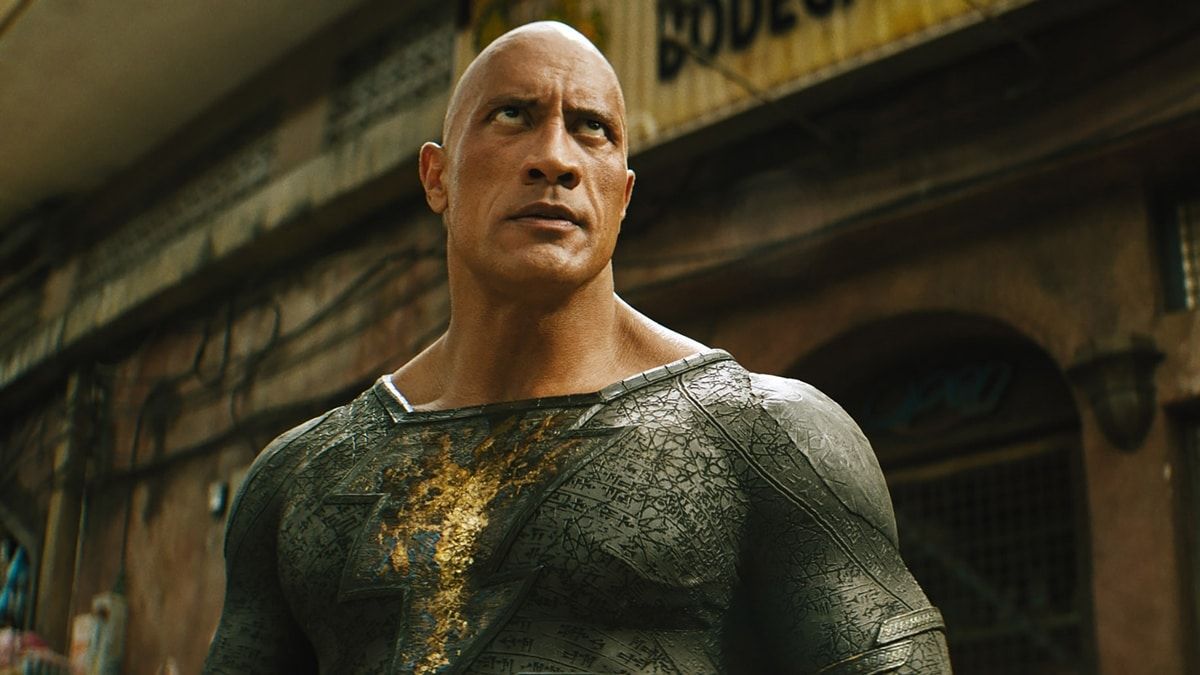
DC’s Black Adam Capitalizes on an Overused Comic Book Trope
It's been said that superheroes are only as good as the super villains they battle. There are those with powers diametrically opposed to their opponents such as Superman's strength versus Lex Luthor's intellect, Batman's analytical mind versus the Joker's madness, and Iron Man's technology versus the Mandarin's magic. There's also the copycat villain, a character with similar superpowers but evil motivations. Having the hero battle someone with powers that mimic their own is a compelling way to introduce audiences to a character's specific world. Black Adam premiered as a darker version of Captain Marvel (now known as Shazam), and encompassed how the Wizard's gifted powers could be used by someone unworthy.
CBR VIDEO OF THE DAY
This trend of the dark mirror villain has spanned comic book universes for decades, introducing characters such as the Reverse-Flash, Bizarro, Venom, and Sabretooth. But a companion trend has taken hold of these bad guys in recent years. Creative teams will give redemption arcs allowing them to become 'heroes' or at the very least 'misunderstood anti-heroes.' Jaume Collet-Serra's Black Adam film perfectly illustrates that this has become the norm for this style of adversary.
Black Adam's Portrayal in the DCEU and Comics

Dwayne Johnson plays Teth-Adam as a dark, brooding man out of time with a lot of mental baggage. He consistently insists that he is not a hero. He kills, has no regard for property, and appears to have little to no code of honor that informs the actions of most super-powered characters. He was obviously designed to be a villain in the comics and his on-screen appearance does its best to hit these points early in the film.
Copycat heroes allow readers to see the hero without any moral compass to ground them. The Reverse-Flash is a Speedster without altruism, Bizarro does the opposite of what's heroic, Venom focuses on revenge, and Sabretooth doesn't keep his animalistic instincts in check. Black Adam has all the powers of Shazam (albeit with Egyptian Gods providing his power instead of their Roman counterparts) and he uses them for personal gain, empowerment, and vengeance.
But all these characters have been redeemed. Venom transitioned from adversary to Lethal Protector, Bizarro has been a good guy based on the particular story, Reverse-Flash has been heroic in comics as well as on-screen in the Arrowverse, and Sabretooth has made amends for some of his past atrocities. Black Adam led this trend back in the 90s by becoming a member of the Justice Society. Although his tenure on the team was brief, it was clear he was trying to grow beyond being a simple one-dimensional bad guy. It took several issues and storylines, but he did eventually evolve into a more relatable fighter for good.
Black Adam's use of the Villain Redemption Comic Book Trope

It can be argued that villain redemption allows comic companies to publish more books while allowing writers to tell darker stories. But this redemption trope has so permeated the medium that Black Adam's first outing chooses to just skip the comic-book evolution from villain to hero and go straight to him being a dark protector.
Black Adam never faces off against Shazam, the character he's supposed to be a darker reflection of, before taking his place as Kahndaq's Champion. While normally it might take a film villain several sequels to be redeemed, Teth-Adam bypasses the entire process. Redemption has become such a regular occurrence, that the DCEU just assumes it will happen and doesn't give viewers the lead-up or pay-off. Because there was never a good versus evil battle between Shazam and Black Adam, it will be interesting to see what happens when the two inevitably meet on screen and how that confrontation will ultimately play out.































![iFi's GO Bar Kensei Dongle DAC Supports K2HD Technology With Some Samurai Swagger [Updated] iFi's GO Bar Kensei Dongle DAC Supports K2HD Technology With Some Samurai Swagger [Updated]](https://i0.wp.com/cdn.ecoustics.com/db0/wblob/17BA35E873D594/33FF/45A11/QTXOLJR4xDKSNMMk2WlTgjaIlvSgcYpeU1xJzUwIoYs/ifi-go-bar-kensei.jpg?w=768&ssl=1)

























